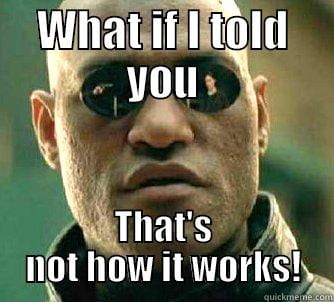If this first story isn’t a testament to how much our lawmakers don’t know about blockchain and cryptocurrencies, I don’t know what is. Many in the cryptocurrency industry have long demanded that Congress provide “regulatory clarity” on how it will tax and regulate digital assets. But as powerful figures in Washington weigh in, it’s doubtful crypto enthusiasts are liking what they hear. Democratic Rep. Bill Foster of Illinois, co-chair of the House blockchain caucus, said Tuesday that laws must be passed to allow federal courts to identify digital-asset holders and then reverse transactions in Bitcoin. So basically what he is saying is he’d like to have nice crypto customer service line to call to complain when something goes wrong.


Someone please be sure that Rep. Foster gets the message above. The stablecoin with a market cap of $25 billion is currently on four networks. USDC, the stablecoin now native to four blockchains, could soon be on eight to 10 more networks, CoinDesk has learned. It’d be the broadest expansion of the $25 billion stablecoin to date, potentially surpassing the eight blockchains that support Tether’s USDT, the market leader with a $63 billion market cap. Bitcoin’s reliance on large-scale mining infrastructure and geographic concentration has been thrown into sharp relief by China’s recent mining crackdown. In May, China announced that it would be getting tough on crypto mining and trading as a response to financial risks. Grey Jabesi comes from a poor family in Malawi. Gaining formal education was not part of his priorities as he was only interested in games and computers but his parents could not afford them. According to the young entrepreneur, he attended school for the sake of his parents and not because he thought it could be meaningful to him someday.

Grey Jabesi. Photo credit: NOW in SA
You can find these stories and more below:
While you are at it, why not subscribe.
Also, check out this week’s featured podcast:
